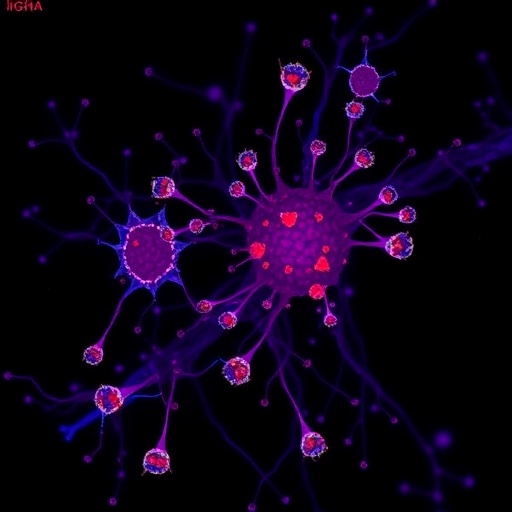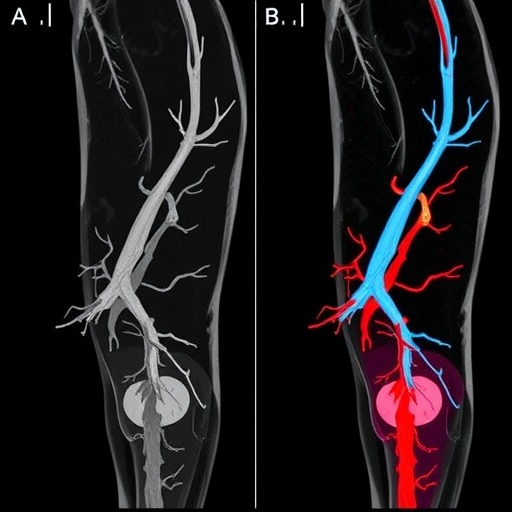PROTECT YOUR DNA WITH QUANTUM TECHNOLOGY
Orgo-Life the new way to the future Advertising by AdpathwayIn the quest for sustainable resource recovery, the study by Chen et al. sheds light on the innovative approach of biomass-assisted roasting. This technique targets the extraction of valuable metals such as iron (Fe) and manganese (Mn) from electrolytic manganese residues, a byproduct of manganese processing. The researchers have meticulously unveiled the phase evolution and metal mobility during the roasting process, presenting a sustainable solution that aligns well with circular economy principles. Their findings could significantly impact the way we handle industrial waste and metal recovery.
Electrolytic manganese production results in substantial residues that, if managed poorly, can pose significant environmental concerns. Traditional methods for treating such residues often lack efficiency and sustainability. However, the new research highlights how using biomass can transform these residues into economically viable resources. Chen and his team demonstrate that roasting electrolytic manganese residues in the presence of biomass not only improves metal recovery rates but also minimizes the generation of environmentally harmful byproducts.
At the core of this process lies the principle of phase change, wherein the original mineral structure of the residual waste is altered through high-temperature processing. By integrating biomass into the roasting process, the researchers observe a synergistic effect that enhances metal extraction. The use of biomass serves a dual purpose, functioning not only as a reducing agent but also potentially providing a carbon source that could facilitate the transition of metals into a more recoverable form.
One of the key findings of this research is the examination of metal mobility during the roasting process. The authors illustrate how various operational parameters, including temperature and biomass-to-residue ratio, influence the behavior of manganese and iron. This mobility is critical for ensuring that the metals can be effectively recovered during downstream processing, paving the way for efficient resource reclamation while adhering to environmental standards.
Moreover, the findings suggest that the optimal conditions for roasting not only enhance metal recovery but also result in the production of materials that can be utilized in other applications. This opens avenues for creating a closed-loop system, wherein industrial waste is repurposed while contributing to the production of useful materials — all while reducing reliance on virgin raw materials. The implications for industries reliant on manganese and iron are profound, as they could potentially reduce operational costs and improve sustainability metrics.
In addition to technical advancements, the researchers emphasize the environmental benefits of biomass-assisted roasting. Conventional processes often lead to significant carbon emissions and generate hazardous waste. Conversely, the approach proposed by Chen et al. significantly lowers the carbon footprint associated with metal recovery processes. By adopting a greener approach, industries could fulfill regulatory requirements concerning emissions while also appealing to ethically conscious consumers and investors.
As the world increasingly shifts towards sustainable practices, findings such as those presented in this study become vital. The research illustrates not just the feasibility of an innovative extraction method but also the importance of integrating environmental stewardship into industrial processes. By utilizing waste biomass, the method illustrates a practical approach to achieving zero waste in industrial settings while simultaneously creating value through resource recovery.
Crucially, the research by Chen et al. incorporates comprehensive analyses backed by experimental data. The team compiled diverse metrics, revealing intricacies in phase transformations and the behavior of different minerals under varying conditions. This depth of analysis not only supports the conclusions but also enriches the dialogue surrounding sustainable practices in metallurgy.
Anticipating future developments, the researchers propose further exploration into the scalability of the biomass-assisted roasting technique. Assessing the practicality of implementing this method on an industrial scale is essential for translating experimental success into actionable change within industry practices. Moreover, future studies could focus on optimizing biomass sources, exploring the most efficient types of wood or agricultural residues that can be utilized in various regions globally.
The multi-faceted approach taken by Chen and colleagues exemplifies the innovative spirit present within current scientific research. By addressing both metal recovery and environmental sustainability, their findings contribute to a broader vision for future industrial practices. The combination of advanced metallurgy with renewable resource utilization demonstrates the capabilities of modern engineering to foster a more sustainable future.
In conclusion, Chen et al. put forth a compelling case for the adoption of biomass-assisted roasting as a method for improving the recovery of vital metals from industrial waste. Their research stands as an emblem of how science can drive impactful change, bridging gaps between metal recovery processes and sustainability initiatives. As industries seek ways to uphold ethical standards while still maintaining profitability, the insights gained from this study serve as a beacon for innovation in resource management. As we strive for a more sustainable future, methods like these could very well reshape the landscape of materials recovery and recycling.
This study’s implications extend beyond merely recovering metals; it signals a necessary shift in how industries can rethink waste management. By harnessing the power of biomass for recovery processes, the findings could help guide new regulatory frameworks that encourage more responsible handling of industrial byproducts. As a result, this research is not just important academically; its practical applications could resonate throughout the industry, inspiring a wave of green technologies aimed at reducing environmental impact.
Subject of Research: Biomass-Assisted Roasting for Metal Recovery
Article Title: Biomass-Assisted Roasting for Fe3O4 and MnO Recovery from Electrolytic Manganese Residues: Unraveling Phase Evolution and Metal Mobility.
Article References:
Chen, X., Sun, N., Khan, M.S. et al. Biomass-Assisted Roasting for Fe3O4 and MnO Recovery from Electrolytic Manganese Residues: Unraveling Phase Evolution and Metal Mobility.
Waste Biomass Valor (2025). https://doi.org/10.1007/s12649-025-03370-5
Image Credits: AI Generated
DOI:
Keywords: Biomass-assisted roasting, metal recovery, electrolytic manganese residues, sustainable practices, phase evolution, environmental impacts.
Tags: biomass-assisted roasting techniquecircular economy in metal recoveryeconomic viability of metal recoveryelectrolytic manganese processingenhancing metal recovery ratesenvironmental impact of manganese wasteindustrial waste treatment advancementsinnovative waste management solutionsmetal extraction from residuesminimizing harmful byproducts in metallurgyphase evolution in roasting processSustainable resource recovery


 18 hours ago
7
18 hours ago
7





















 English (US) ·
English (US) ·  French (CA) ·
French (CA) ·